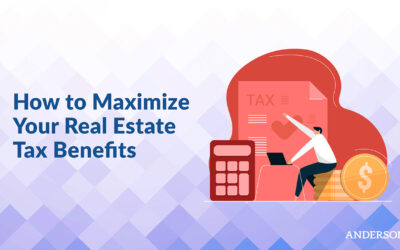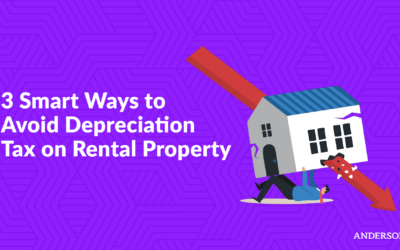
Overview of Tax Season
The 2022 tax season is right around the corner, meaning now is the time for real estate investors to prepare. Tax laws and deduction allowances change frequently. Giving yourself ample time to prepare and file is the best way to reduce your liabilities and avoid costly mistakes. An itemized deduction filing is usually the best option if you bought, sold, or owned real estate assets in 2022.
This year’s tax deadline is Tuesday, April 18, 2023. A six-month extension might be available to some filers, but it’s usually a good idea to get your taxes filed and out of the way early so you can focus on this year’s investment strategy.
Key Takeaways
- Preparing for real estate tax season early helps you avoid costly mistakes, lets you maximize deductions, and gives you time to review annual tax law changes.
- Real estate investors can maximize their deductions by planning when to sell or buy new assets and by considering a property’s tax basis.
- Certain strategies can help investors reduce tax liabilities by avoiding capital gains taxes.
- Investors can learn more about real estate tax filing from the IRS, from a professional tax advisor, or by enrolling in a course.
- Planning ahead helps you create more organized record-keeping practices that can help with next year’s filing.
Reasons to Prepare for Tax Season Now
There are many reasons to prepare for tax season now, including:
Avoid Costly Mistakes
Filing early can help you avoid mistakes. Even minor mistakes can cost you thousands of dollars. Filing mistakes usually fall into one of two categories: not taking enough deductions or failing to report all income. Failing to write off all eligible deductions can result in a loss of revenue you deserve. Writing off things that don’t qualify as deductions, failing to report all income, or filling out the wrong forms could result in expensive fines.
Preparing for tax season now gives you ample time to gather your receipts, expenses, and profit reports. You’ll need to collect documents for all write-offs you plan to take, including home office expenses, maintenance receipts, and even charitable donation forms. This is also a good time to decide which forms you’ll need to fill out. For example, Schedule E is where you’ll report rental income and expenses.
Tax & Asset Protection Workshop
Learn about Real Estate & Asset Protection at our next
FREE LIVE STREAM
Take Advantage of Deductions
Real estate comes with a long list of deductions that can reduce your tax liability. Just a few deductible real estate expenses include marketing, cleaning, maintenance, repairs, insurance costs, property management fees, trash removal, utilities, yard maintenance, and property taxes. Planning ahead for your taxes now gives you ample time to review your records and bank statements and consider all the costs you might have put into your property.
Real estate assets are also eligible for improvement and depreciation deductions. Calculating these deductions might take more time and require appraisals or inspection reports.
Plan for Potential Changes
Tax laws change annually. Waiting until the last minute to file taxes can make it difficult to keep up with these changes. For example, for 2022, the income tax brackets have been adjusted slightly. Depending on your real estate and other combined income, you might have moved into a different tax bracket than in previous years.
Other changes include an increase in standard deductions, high alternative minimum tax exemptions, and higher estate tax exemptions. Filing early also gives you time to consult with a tax professional who can provide you with insight into these changes.
Handling your real estate taxes early in the year gives you the opportunity to make any necessary improvements. In addition, looking back at how you organized last year’s documents can help you recognize better ways to plan for next year’s taxes.
Important Considerations When preparing for Real Estate Tax Season
Important things to consider when preparing for real estate tax season include:
Determine Tax Basis
Property tax basis refers to the cost basis of the asset or your capital investment into each property. Determining your tax basis helps you discover your depreciation, losses, gains, or amortization. You typically calculate cost basis by adding the expense of improvements to the property’s purchase price and then subtracting any tax credits.
Maximize Deductions
Preparing for taxes early gives you time to go back through and look for any deductions you might have missed. You can also further reduce your tax liability by contributing to your retirement account. However, if you miss the due date, you’ll no longer be able to do this for 2022.
You can also split the depreciation of assets like your work vehicle, home office, or equipment over multiple years. Interest is also a taxable deduction and an important one when it comes to real estate assets. Interest, loan points, origination fees, and credit card fees for expenses are all eligible real estate deductions. Determining a strategy for this ahead of time can help you maximize your real estate deductions.
Learn How To Report Capital Gains
Reporting capital gains is part of filing taxes when you invest in real estate. Whether this is your first year earning gains or you shifted your investments to or from real estate, you’ll want to give yourself plenty of time to learn how to report your gains properly.
Learning how to report capital gains also includes knowing what real estate costs are taxable and when. For example, most real estate rental income is taxable, and taxes are calculated in the year it’s received. This means if someone pays you upfront for rent for the following year, you must include it on that year’s taxes. Other costs, such as security deposits, are only taxable if you keep a portion of the funds to cover damages or repairs.
Preparing ahead of time gives investors the opportunity to consider this in their buying and selling strategies. You might decide to hold on to a property a little longer or sell it sooner to offset your tax liabilities in a certain year. Now is also a great time to learn how to avoid capital gains taxes, so you can set a plan in motion to reduce next year’s costs.
Resources for Further Learning
Resources can be a great way to expand your real estate tax knowledge and ensure you’re maximizing your deductions while meeting state and federal rules. Here are a few additional resources for further learning:
IRS Resources
The Internal Revenue Service (IRS) regulates federal tax laws. You can access IRS tax resources to learn about annual filing deadlines and changes.
Professional Tax Advisors
Professional tax advisors can help real estate investors meet all state and federal filing requirements while also helping them maximize deductions. Working with a professional tax advisor who’s familiar with real estate asset filings helps you save by avoiding costly mistakes and including all relevant itemizations.
Online Real Estate Tax Courses
Some real estate investors might choose to enroll in an online real estate tax course. Online courses can help investors minimize filing mistakes while also learning new strategies to reduce tax liabilities. For example, managing your real estate assets through an LLC or a trust might be beneficial, depending on your financial situation and assets.
Conclusion
Now Is the Time to Prepare for Tax Season
It’s never too early to prepare for tax season. Collecting your documents and making a list of expenses can speed up the time it takes to file your taxes. Preparing early also gives you time to maximize your deductions.
Importance of Planning Ahead
Planning ahead for taxes also sets the tone for how you’ll organize this year’s expenses. Create a record-keeping system that helps you account for all costs so you can keep more of your hard-earned income in your pockets. If you decide to work with a professional, you might find that supplying the advisor with your records now leads to a more efficient and organized filing process next year.
Getting Started
Our team at Anderson Advisors is ready to help you create a real estate tax strategy that maximizes your deductions. We’ll work with you to create a customized strategy that meets your unique asset filing needs. Contact us today!
Free Strategy Session with an Anderson Advisor
Receive a detailed risk assessment to assist in lowering problem areas that could wipe out all of your assets with one wrong move. Speak with an Anderson Professional Advisor to get your FREE Strategy Session. Limited-Time Offer: FREE (a $750 value.)















